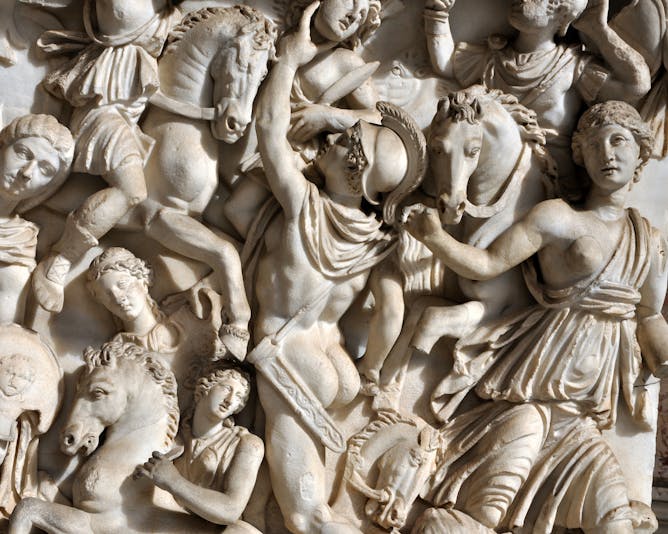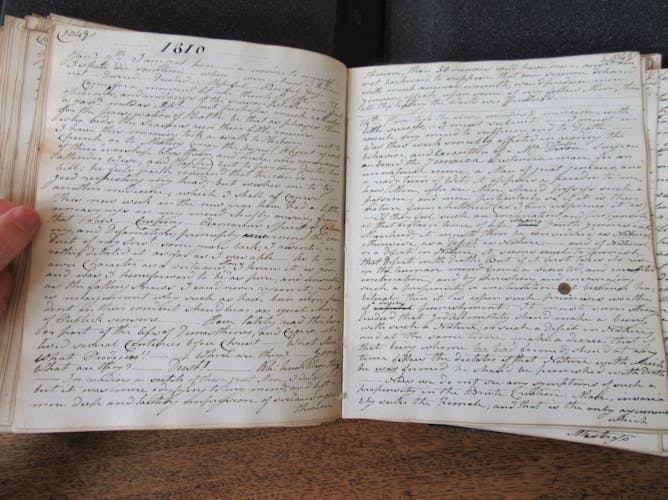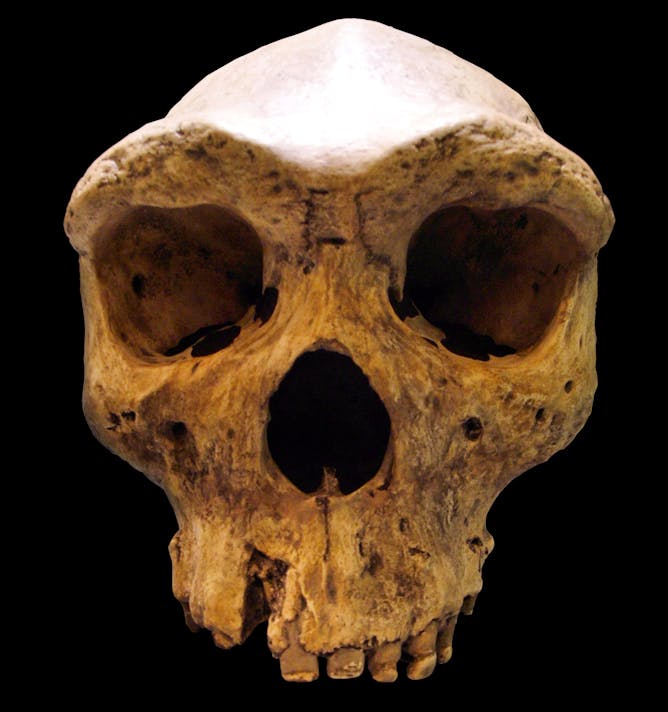|
|
|
Editor's note
|
|
Depending on how you feel about Latin, many of us were lucky or unlucky enough to have spent years studying it at school. As one of the few people in my year who actually enjoyed it, I spent some time in lessons with the year above mine, which meant we got to read some of the slightly racier Roman writers, including Propertius, whose account of stumbling home drunk to his lover Cynthia’s bed was very much grist to my 16-year-old mill. Catullus, too, with his poems to male and female lovers alike, kept me interested in a way that learning “amo, amas, amat” was never going to do.
For many poets and scholars, though, it has been the ancient Greeks who made the running, particularly when it came to their depictions of queer sexuality. These have attracted plaudits for their aestheticism and romance, which seemed to elevate sexuality beyond the physical to a more spiritual plane. Not so the Romans, who tend to be dismissed as “gross” and “obscene”. This is unfair, writes classicist Jennifer Ingleheart, who points to the
way in which the likes of Oscar Wilde and many other writers of his age might quote Greek elegies in public and reserve Rome for their private pleasure.
In February, the UK celebrates LGBT+ History Month, so it was timely that we also had an article by historian Eamonn O'Keeffe, who – during his research into Napoleonic-era military musicians – stumbled quite by accident on the diary of a Yorkshire farmer, written in 1810, whose views on homosexuality were surprisingly progressive for Georgian Britain.
This week, we also look at what happens if you replace every meal with a vegan food powder, and report on a mysterious extinct species with which the earliest humans may have interbred.
From Africa, we have this lovely tribute to Joseph Shabalala, one of the founders of the South African supergroup Ladysmith Black Mambazo. From Canada comes the smelly truth about relationships. And
from our colleagues in the US, footage and photos that bring to life the ordinary soldiers who fought and died in the bloodbath of Iwo Jima, 75 years ago.
|
Jonathan Este
Associate Editor, Arts + Culture Editor
|

|
|
|
|

The Romans have been denounced for their reverie in ‘vice’ but their hedonistic approach to love and sexuality should be celebrated
salajean/Shutterstock
Jennifer Ingleheart, Durham University
Grecian love is often idealised as an respectable model for queer love. However, there's more pleasure and reality to be found in ancient Rome's dirtier version
|

Matthew Tomlinson’s diary is full of insights into Georgian England.
Wakefield Library
Eamonn O'Keeffe, University of Oxford
Matthew Tomlinson deplored the execution of a naval surgeon for sodomy, writing that the death penalty was cruel and unfair.
|

Meal flavours include chocolate, vanilla, banana, and coffee.
BLACKDAY/ Shutterstock
J Bernadette Moore, University of Leeds; Mark Hopkins, University of Leeds; Matthew Campbell, University of Leeds
Our experiment tested the short- and long-terms effects of eating the vegan meal replacement powder.
|

Homo rhodesiensis is an example of an archaic human.
wikipedia
George Busby, University of Oxford
Early humans in Africa may have interbred with a ghost population that likely split from the ancestors of humans and Neanderthals between 360,000 and 1.02 million years ago.
|

Many study participants reported they had smelled an absent partner’s clothing because it made them feel relaxed or secure.
(Shutterstock)
Marlise Hofer, University of British Columbia; Frances Chen, University of British Columbia
Smelling a romantic partner's clothing is common behaviour, and research shows that it may improve sleep quality, and ease stress levels.
|
|
|
-
Alan Shipman, The Open University
The question is: how long will Rishi Sunak last?
-
Roberto Foa, University of Cambridge; Andrew James Klassen, University of Cambridge
Dissatisfaction with democracy is rising around the world. But there are a few 'islands of contentment'.
-
Akhona Ndzuta, University of Fort Hare
The passing of music giant Joseph Shabalala rests heavy on South African hearts - he told the story of black migrants within the apartheid system in a way no-one else did - and achieved global fame.
-
Greg Wilsbacher, University of South Carolina
Films of the battle for Iwo Jima, being digitized 75 years after they were made, offer connections and lessons for Americans of today.
-
Michael C. Weisenburg, University of South Carolina
During the 'love glut,' roughly 1 in 5 of all comic books were romance comics, as publishers scrambled to appease readers' appetites for scandalous storylines.
|
|
| |
Featured events
|

|
Kingston Lane, Uxbridge, London, Hillingdon, UB8 3PH, United Kingdom of Great Britain and Northern Ireland — Brunel University London
|

|
Aston Triangle, Birmingham, Birmingham, Birmingham, B4 7ET, United Kingdom of Great Britain and Northern Ireland — Aston University
|

|
Kingston Lane, Uxbridge, London, Hillingdon, UB8 3PH, United Kingdom of Great Britain and Northern Ireland — Brunel University London
|

|
Julian Study Centre Lecture Theatre, University of East Anglia, Norwich, Norfolk, NR4 7TJ, United Kingdom of Great Britain and Northern Ireland — University of East Anglia
|
|
|
|
| |
| |
| |
| |
| |
|
|
|
|
|
|
|